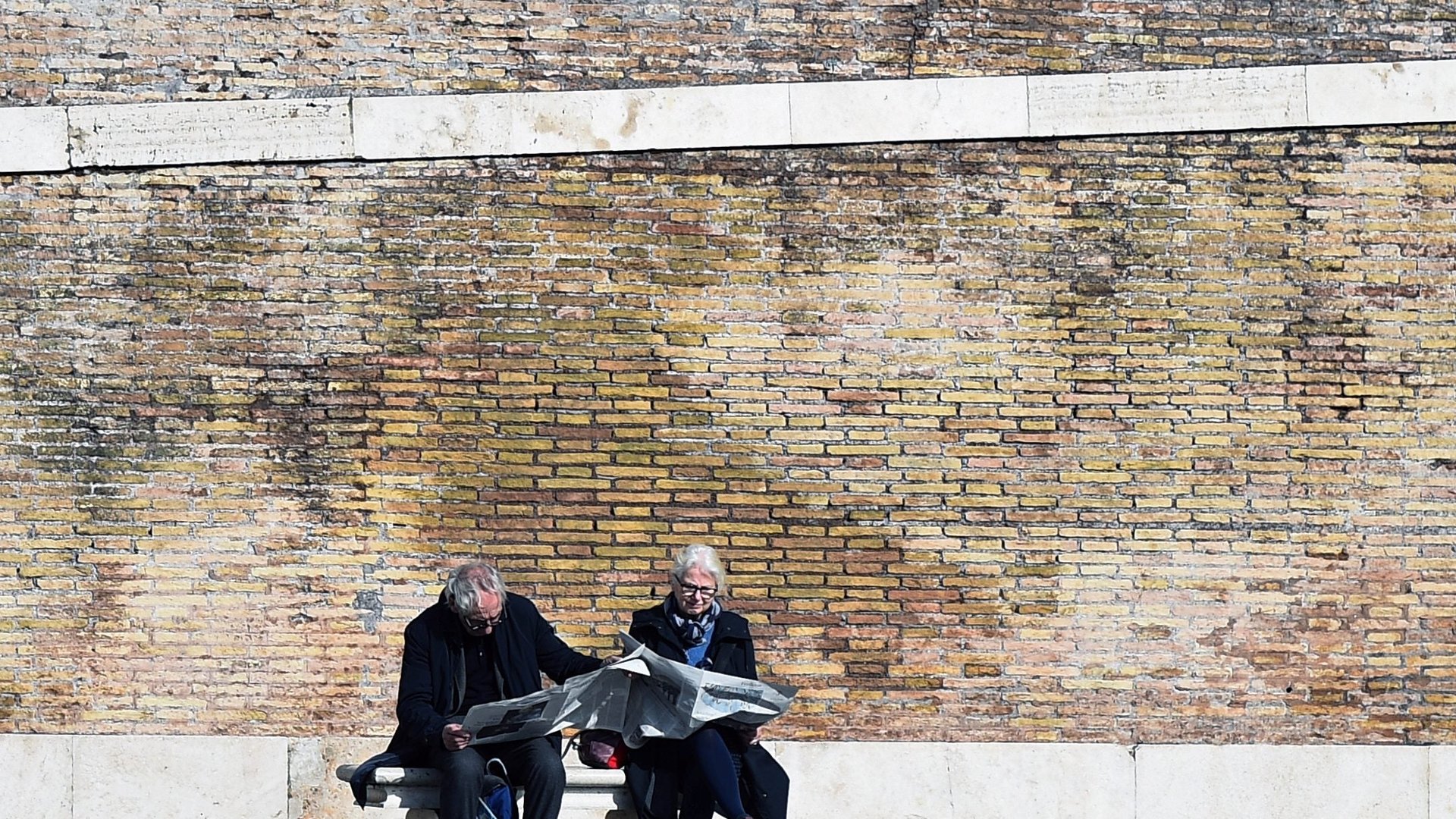Under lockdown, Italy debates if physical newspapers are essential
As it became increasingly clear earlier this week that the Italian government would announce even more stringent measures to combat coronavirus, in a country that already faces extraordinary restrictions, a debate began to brew over what should be left open and what should be forced to closed. Places that sell food and medicine would have to keep functioning, but what about the edicole—the small shops that sell newspapers and magazines, and that still exist in the thousands in Italy?


As it became increasingly clear earlier this week that the Italian government would announce even more stringent measures to combat coronavirus, in a country that already faces extraordinary restrictions, a debate began to brew over what should be left open and what should be forced to closed. Places that sell food and medicine would have to keep functioning, but what about the edicole—the small shops that sell newspapers and magazines, and that still exist in the thousands in Italy?
On Wednesday (March 11), Carlo Verdelli, the director of Repubblica, one of the two largest newspapers in the country, alongside Corriere, published a note arguing that newsstands should be added to the list of essential services that was being prepared by the government. Verdelli argued that they should remain open because access to information is more fundamental now than ever. The trade association of newspapers and the national union of newsagents made similar points.
The conversation spread to social media, where some users argued that newsstands should be closed, because information could be easily found online, and the tiny shops could become vectors for contagion.
Here, like everywhere else, newsstands are disappearing. They went from 18,400 to 14,300 during the 2010s—a number that includes those that also sell souvenirs for tourists. Excluding them, the real number of newsstands in Italy is estimated to be around 5,000. Still, Italians like to read newspapers. Almost a third of the population gets its daily news in print—not as much as in Germany (43%), but more than in France (23%).
After some debate, and as the number of cases continued to spike, the government finally took a decision. Everything had to close except what it deemed essential services—food stores, pharmacies, hardware stores, and factories. The more productive departments of companies were allowed to continue operating, but marketing, human resources, and finance had to stop. And newsstands were also allowed to keep going.
On Thursday (March 12), newsstands across the country sold publications that communicated the decision. “Italia shuts down,” Repubblica said in large type. “Markets, pharmacies, and newsstands remain open.” ”Italy is now guarded,” read the headline of Corriere. ”Bars, offices, and stores closed (except markets, newsstands, and pharmacies).”
In Milan, newspaper vendors are proud of what they do. Rosi Varezza, who operates a small but busy newsstand, explained that papers are essential for elderly readers, who are most at risk from the outbreak. Clients buy newspapers for habit, but also to get information they deem more trustworthy; to go deep into subjects they consider important; and to hear the news delivered from specific voices—columnists that have informed them for decades.
Elisa Mazza, who runs a more upscale newsstand nearby, selling publications from the US and the UK, said the edicole are not only important to provide information, but also distraction in these times of quarantines. She says people are leaving with piles of magazines, puzzles, and books.
Newsstands are even registering a small bump in sales. That was clear in Milan. In a busier newsstand, near a major shopping street here, I had to wait to pay for the newspaper. And when my turn came, I had to ask my questions quickly. The newsagent was impatient, answering with short sentences, and insistently looking over my shoulder. A line was forming.